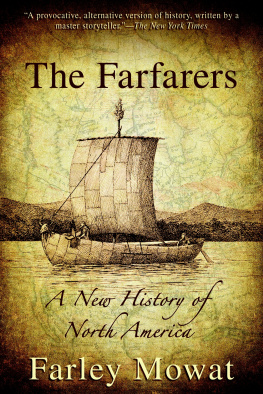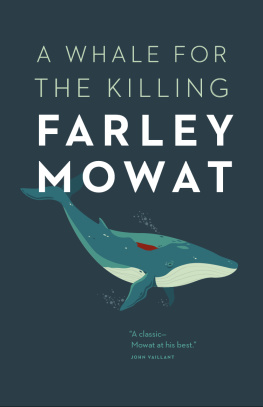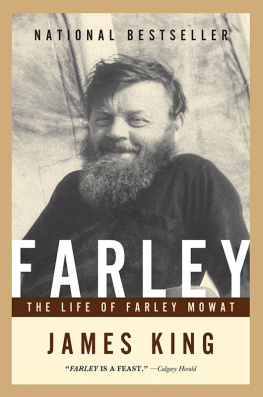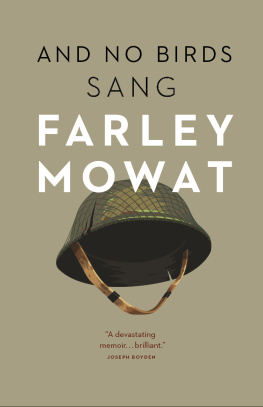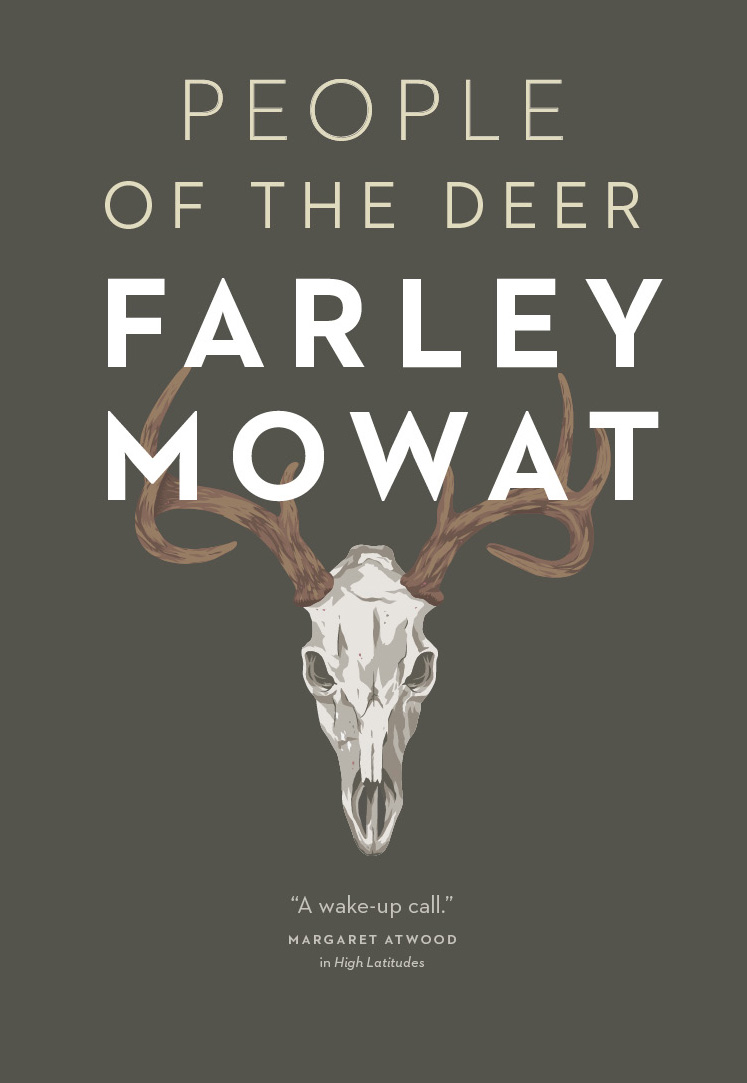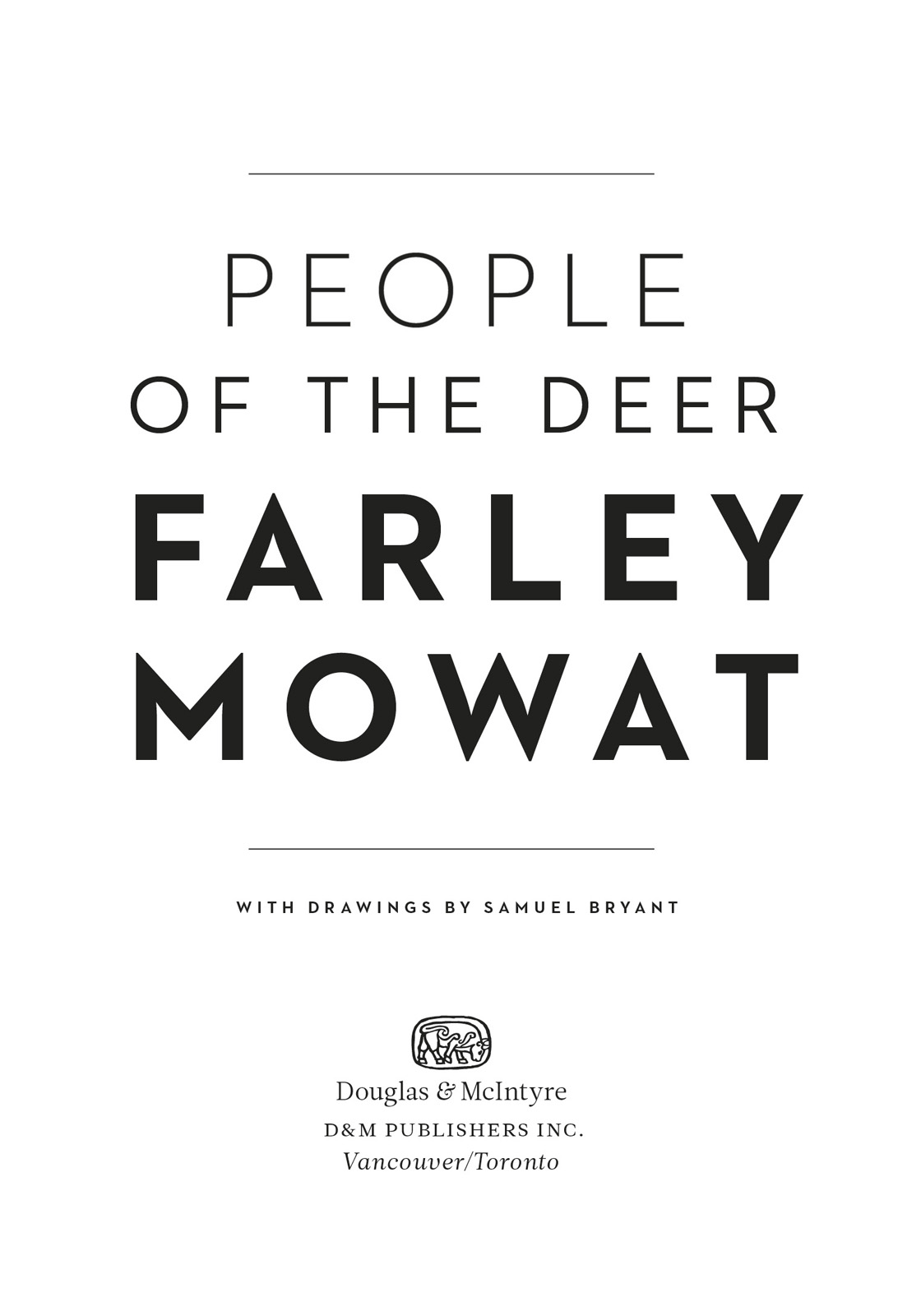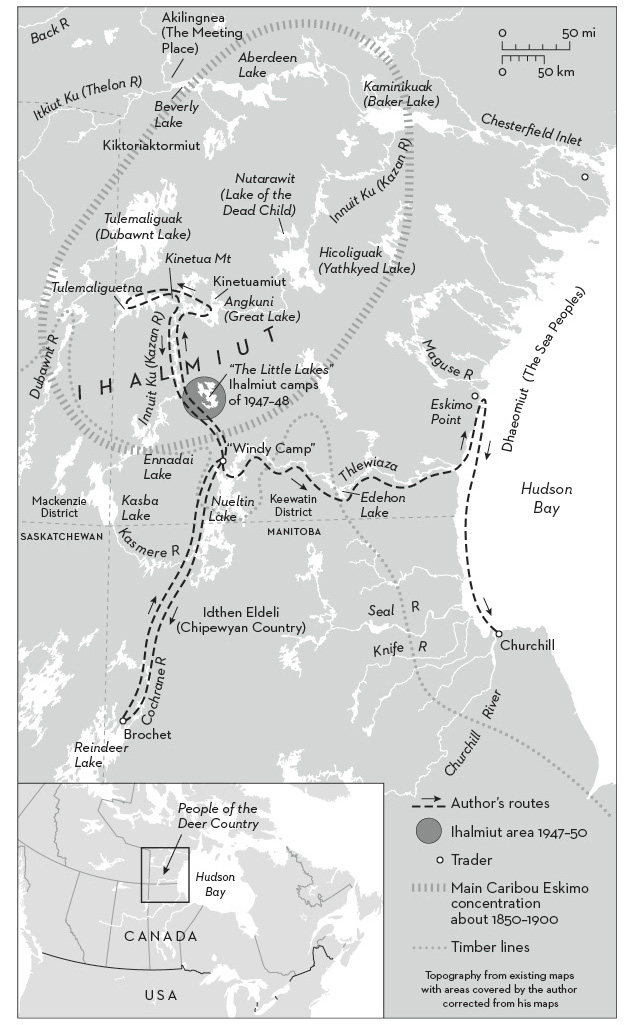I am still tied to the Barrens, not by the simple web of memories alone, but by something more powerful. There is an abiding affection in my heart for the men and women of the plains who lent me their eyes so that I was privileged to look backward through the dark void of years and to see not only the relics of forgotten times, but also to see into the minds and the thoughts of the men of those times. It was a great gift I had from the People and one that deserved repayment...
Preface
On an evening when the sun hovered above the horizons lip, I sat beside a man who was not of my race, and watched a spectacle so overwhelming in its magnitude that I had no words for it.
Below us, on the undulating darkness of the barren plains, a tide of life flowed out of the dim south and engulfed the world, submerged it so that it sank beneath a living sea. The very air was heavy with the breath of life itself. There was a sound of breathing and of moving that was like a rising wind. It was as if the inanimate and brutal crust of rock had been imbued with the essential spark and had risen from its ageless rigidity to claim the rights of life.
The man who sat beside me stared over the rolling hordes that swept in upon us, and it was as if he stretched the hands of his soul out to the floodthe eddying, turbulent and all-embracing flood.
I felt afraid. The man beside me was no longer there. In some way that I could not fathom he had gone from me and had flung himself into that living torrent. There was an ecstasy upon him then. The man was gone, his spirit had sought and found a union with the amorphous, living entity which had possessed his land.
I could not understand, for I was a stranger in that place, but the man who had been beside me was of the land. He was more than that. He was of this profound, incredible thing I was beholding.
Darkness was full upon us before the man returned to me. There was no light left upon the plains, but the unseen shadows still held the faint murmur of ten thousand vital hearts beating with strength and power on every side of us. It was too dark to see and yet I knew the man had turned his face toward me, fixed his eyes on mine. He spoke so quietly it might have been that I heard words spoken from the divided voice of the monstrous visitation I had witnessed.
Tuktu-mie ... The words came slowly... This is the Hostthe Legion of the Deer...
Preface to the 1975 Edition
At the time People of the Deer was published, in 1952, it was impossible for me to obtain documentary corroboration for much of the story. The book dealt harshly with the Old Empires of the Norththe missions, the RCMP, the trading companies and the federal governmentwho between them possessed all of the official evidence. They were not about to give me access to the documentary proof of their errors of omission and commission. I was therefore forced to be somewhat circumspect. Some of the names used had to be pseudonyms. Furthermore, I was sometimes forced to refrain from correctly identifying events in terms of time and locale.
By 1959, when I wrote The Desperate People, conditions had altered drastically and I was able to obtain the requisite documentationthe paper proof of the truth. Consequently, in The Desperate People all names used were the correct ones and the events were presented in their actual spatial and temporal contexts. Where apparent discrepancies occur between the two books, the version given in The Desperate People is the correct one.
In the Preface to The Desperate People my 1959 sequel to People of the Deer I wrote: There are now belated signs of a lightening on the somber horizon of the Canadian arctic; but this may be no more than the illusion of a false sunrise in a polar winter...
It is now fifteen years since those words were written and the sunrise has proved to be an illusion in all truth. The physical disruptions which our society inflicted on the Eskimos during the first half of this century have been ameliorated to the extent that few Eskimos now die of physical neglect. Since about 1960 we have made considerable efforts to ensure that they will survive in the flesh; but at the same time we have pursued a policy which is very efficiently destroying them psychically. We have made a ruthless and concerted effort to dispossess them from their own age-old way of life and thought and to force them into the mold of our modern technological society. Assimilation has been our goal... and it has failed disastrously. In 1974 almost all Canadian Eskimos have been broken away from the support of their land (which is theirs no longer) and live clustered in modern slumsmany of them hardly better than ghettosin not many more than a score of artificial settlements along the rim of the Canadian North. Here they exist for the most part on welfare payments of one kind or anotherno longer taking sustenance from the land and the sea. Effectively they live in unguarded concentration camps, provided with the basic requirements for mere physical survival, but deprived of the freedom to shape and control their own lives. We have salved our national conscience by ensuring that they do not die anymore of outright starvation, but we have resolutely denied them the right to live according to their own inherent needsthe right to function as viable human beings according to their own desires and capabilities.
Genocide can be practiced in a variety of ways.
The Desperate People, of whom I wrote in 1952 and 1959, are desperate still. But now they include all the native peoples of CanadaIndian, Eskimo and mixed bloods. They are making what may be their last convulsive effort to achieve survival apart from, and despite, a society which will accept them only if they transform themselves into second-class simulacrums of Western man. They are fighting what may well be their ultimate battle to exist in the world according to their own concept of what their lives should be. They are making what is probably their final effort to achieve the freedom to be themselves.
We have long prided ourselves on being a democratic nation, dedicated to the altar of freedom. Freedom for whom? If it is only freedom for ourselves to do as we please at the expense of others, then our pious stance is even more abhorrent than that of any overt tyrantfor ours is based upon a vile hypocrisy.
To have freedom one must give freedom. Let us put our vaunted belief in freedom to the test. Let us give back the freedom that we have taken from the native peoples of this land. If we cannot do this, then not only are they doomed, but we will have doomed ourselves as well.
Because the time is short, and the time is now, and that time will not come again, I am reissuing this book in the hope that it may help us to understand and to acknowledge the crimes against humanity we have perpetrated here, in our country, under the aegis of a free democracy... crimes which we are perpetrating still in a more subtle guise.
F.M.
March 1974
Port Hope, Ontario
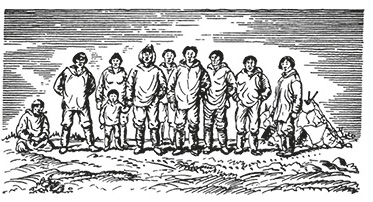
The Why and Wherefore

![Farley Mowat People of the Deer [Paperback]](/uploads/posts/book/52958/thumbs/farley-mowat-people-of-the-deer-paperback.jpg)
